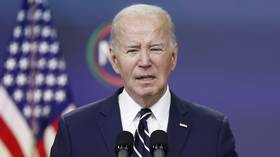Rouble appreciation in the spotlight on energy revenues
Oil prices holding at above $70/bbl mean Russia is enjoying strong energy revenues and boosting its current account surplus. But that might not help the economy.
The rouble rally is being fueled by high oil prices and relatively high interest rates. It’s good for Russians traveling abroad – but its bad for exporters and the economy.
"America keeps the dollar weak to support its economy, China keeps Yuan undervalued for the same reason. We also need to have a weaker rouble so our products can compete with imports. I am critical of the Central bank for not being more active in preventing the rouble’s strength."
The Central Bank has intervened to sell billions of roubles to try to keep it under control.
It’s also cut interest rates 13 times, and more are expected. Finance Minister Kudrin is also urging the government to reign spending of oil revenues.
"The ruble has to be objective, balanced, tied to currency inflow into the country. But the Russian government has to be very careful using oil revenues, as the more we use these revenues the stronger the rouble becomes."
The minister says a major part of oil and gas revenues should be neutralized in reserve funds. But economists say this would only be possible when the budget is not in deficit, which is not the case in Russia.
Indeed some officials are preparing for the worst. Earlier this week the economic development ministry warned the Rouble could strengthen as much as 20% in the next three years.












